BirdsCaribbean is expressing deep concern over three areas of Grenada — critical bird habitats and ecosystems — that are now being damaged from development: Mt. Hartman, La Sagesse, and Levera. This includes the island’s only Ramsar site (Levera) and other wetland and forest areas harboring a wide variety of wildlife, including endangered species of sea turtles, and the Critically Endangered Grenada Dove.
Projects underway in these three areas include large resorts, a marina, waterpark, and golf course, all of which will have wide-ranging and permanent negative consequences on the local ecosystems.
BirdsCaribbean is calling for the immediate cessation of destructive activities, pending the completion of proper Environmental Impact Assessments (EIAs) and approvals, mitigation plans, and full and transparent consultations with stakeholders. See links below for how you can help.
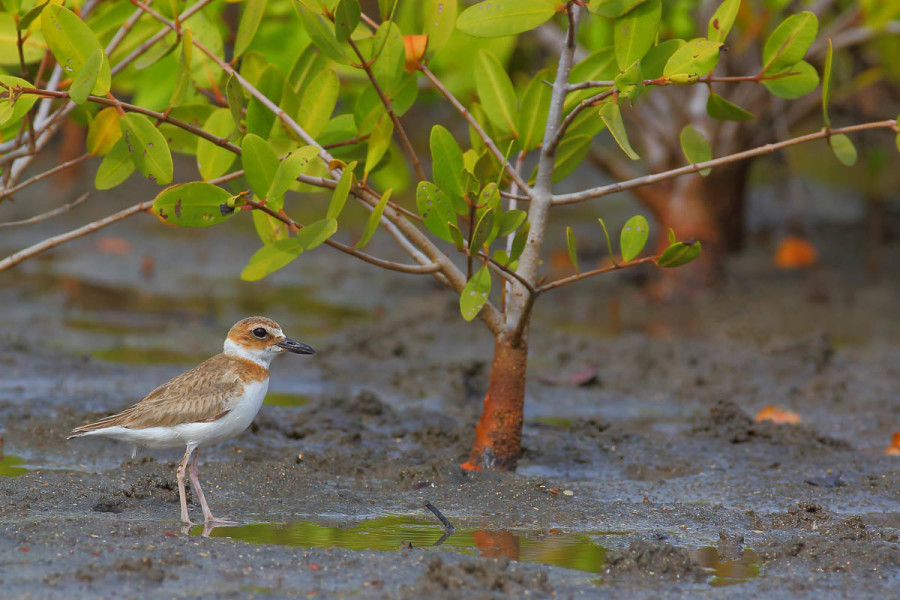
BirdsCaribbean’s Executive Director Lisa Sorenson urges Grenada not to destroy or damage its last remaining wetlands. “Not only are these significant habitats for many vulnerable species of birds and endangered wildlife, wetland areas perform myriad important ecosystem services that improve the safety and health of local communities. These services are increasingly important and economically valuable in the face of climate change.”
Sorenson notes that Grenada is a leader for environmental conservation. It has recently embraced the concept of the “Blue Economy.” In 2013, Grenada went beyond its Caribbean neighbors’ commitments, pledging to protect 25% of its near-shore marine and coastal environment by 2020 under the Caribbean Challenge Initiative signed in 2013. Sadly, these developments and the failure to designate a majority of the protected areas proposed under its Protected Areas Systems Plan, make it increasingly unlikely that Grenada can meet its international obligations and national targets.
Sorenson pointed out that it appears that vegetation has been removed before an approved EIA/plan for all three projects, which would be in direct violation of Grenada’s Physical Planning Act of 2016. Moreover, the developments and the way they are being carried out does not seem consistent with Grenada’s own Blue Growth Coastal Master Plan, whose Guiding Principles and Goals call for Sustainability, the Precautionary Principle, Good Governance, and Equity.
We stand with our local partners and call for action from the leaders of Grenada’s government to protect Grenada’s invaluable natural assets from destruction. You can help – SIGN THE PETITION HERE and see more ways to help below.
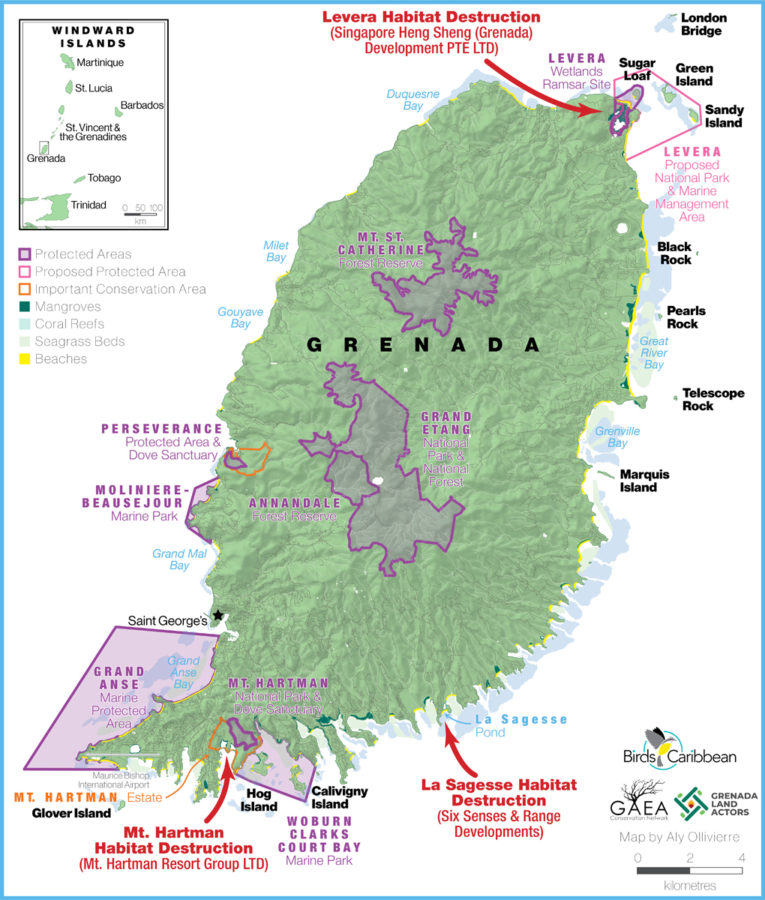
Local conservation groups and partners of BirdsCaribbean in Grenada are alarmed at the recent deforestation of these areas. Jane Nurse of the Grenada Land Actors Platform (GLAP) commented: “We have engaged with decision makers, including the developers and the Physical Planning Unit, but have encountered mostly disappointing negligence. In rectification, we demand that our communities and civil society are consulted before development projects of such a scale are undertaken.”
Other members of the GLAP questioned whether Grenada could accommodate these mega-projects, from water, sewerage, and solid waste treatment, to road infrastructure and airlift, particularly at a time when the world is heading towards one of its biggest recessions. Jody Daniel-Simon of Gaea Conservation Network added: “There are numerous examples of our lands being cleared with no considerations of the ecological impacts; sadly, many of these projects fail because of insufficient funds, leaving behind them only a trail of debts and destruction.”
Mt. Hartman: Last Refuge for the Critically Endangered Grenada Dove and Vital Wetlands
In the Mt. Hartman Estate, dry forest habitat is in the process of being cleared for a new resort and marina that will be developed by the Hartman Resort Group Ltd (formerly Grenada Resort Complex LTD); this Chinese company now owns the property. Communications with the Grenadian Government’s Physical Planning Unit indicate that they are apparently unaware of the project and have not given any permission. There is no known EIA in progress.
The Mt. Hartman National Park was set up to protect habitat crucial to the survival of one of the rarest birds in the world, the Critically Endangered Grenada Dove, unique to Grenada. So special is the dove (there are only about 110 adults remaining) that it is recognized as Grenada’s National Bird. Over 90 other bird species have been recorded throughout the area, including the Grenada Hook-billed Kite, an Endangered subspecies, also endemic to Grenada.
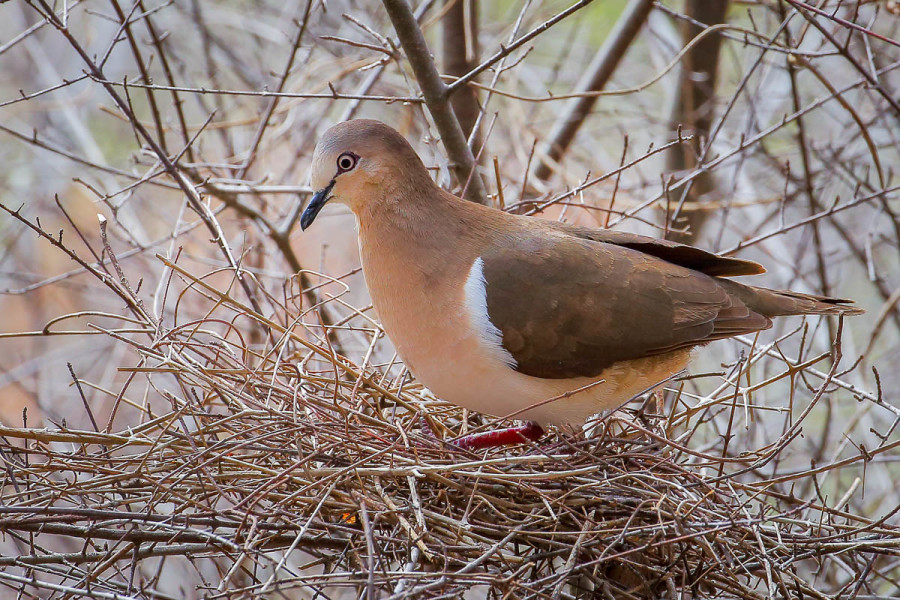
Although the development falls just outside the National Park, it will be directly adjacent to it. Grenada Dove Biologist, Bonnie Rusk, indicated: “Development that is not done carefully, with sufficient mitigation to support the site’s ecosystem and species, will significantly impact the National Park and the purpose for which it was established—the conservation of the Grenada Dove.”
With its unique dry coastal scrub ecosystem and associated biodiversity, Mt. Hartman is internationally recognized as an Important Bird Area (IBA) and as an Endemic Bird Area (EBA) of the Lesser Antilles by BirdLife International, the world leader in bird conservation, and the International Union for the Conservation of Nature (IUCN), the global authority on the status of the natural world and the measures needed to safeguard it.
The Mt. Hartman Estate also encompasses the largest expanse of black mangroves on the island, as well as red mangroves, providing an important “nursery” for fisheries stock to the Woburn fishing community. The mangroves and wetlands act as a buffer zone for land-based pollution, and a natural filter for water. Mangroves have repeatedly been shown to provide protection from storms, hurricanes, and floods. The two wetlands provide critical habitat for numerous species of resident and migratory shorebirds and waterbirds, including many species of conservation concern.
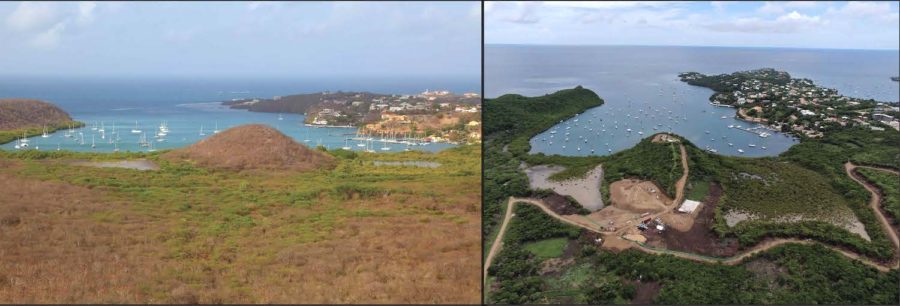
An artistic rendition for the resort (see image below) shows that one of the two vital wetlands and the adjacent mangrove in the Mt. Hartman Estate will be destroyed to create a Marina in Secret Harbor; the other one will be severely impacted by the development. “We successfully protected these wetlands from prior proposed developments,” commented Dr. Sorenson. “It would be a sad loss for one of Grenada’s last remaining wetlands to be destroyed. It is difficult to understand how this can happen when the Government has pledged to protect its vital coastal resources for the benefit of the Grenadian people.”
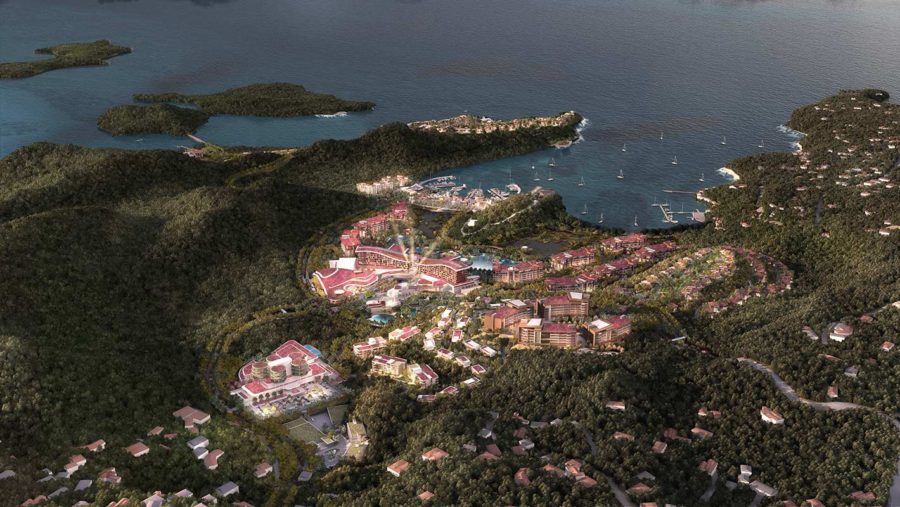
La Sagesse: Destruction of Habitat for Endangered Turtles (Six Senses/Range Developments)
At La Sagesse—listed as a Natural Landmark and Area of Cultural and Historical Interest—there has been extensive clearcutting of mangroves and other vegetation on the headland and around the salt pond, to build the 100-room, Six Senses Resort (tagline “Sustainable is not something we do; it is who we are”). Permission to do the clearing was given by the Physical Planning Unit. Phase II, separate from the Six Senses Resort, adds a 185-room Luxury Hotel, catering to families. Both projects are managed by Range Developments through the Citizenship by Investment (CBI) programme.
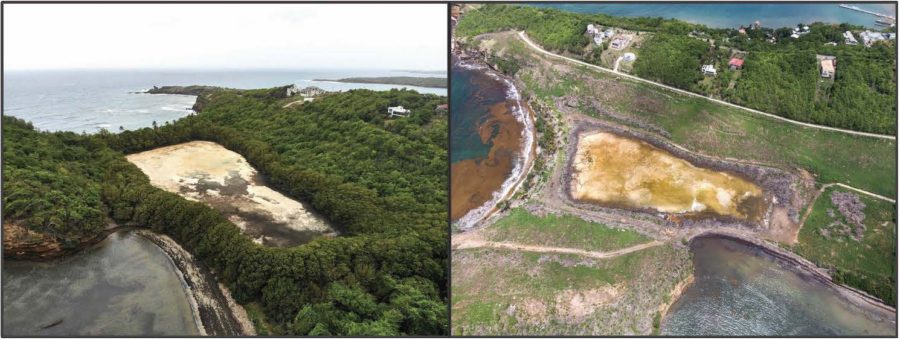
While the EIA and project plan have been approved, only one Town Hall style community meeting was held last week after clearing had already taken place, contrary to the recommendations made in the EIA. Further consultations with the local community are apparently in the works following public outcry. Following a review of the EIA and development plans by scientists from Gaea Conservation Network, the developers have since promised to work with them to develop a mangrove and pond restoration plan; they also claim to have harvested mangrove propagules for restoration purposes. In their 9-page review, Gaea Conservation Network highlighted a litany of environmental concerns that should have been addressed in the EIA, based on the Terms of Reference provided by the developer.
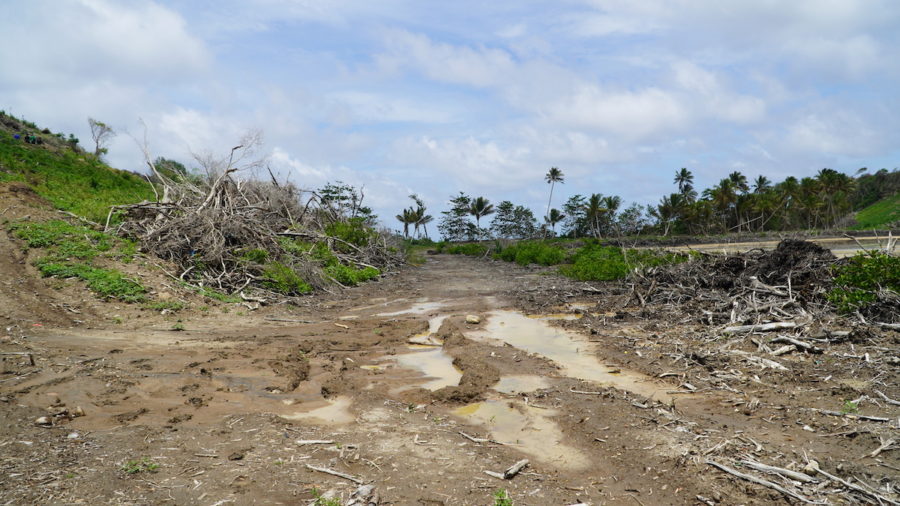
Before the extensive clear cutting, La Sagesse Pond supported white and buttonwood mangrove, providing cover for Critically Endangered hawksbill sea turtles. It is also a nesting site for the Endangered leatherback turtle. A diverse array of some 89 bird species attracts birding tours to this site. Under an older National Parks and Protected Areas plan, the area was proposed as a Protected Seascape due to its outstanding features including a mangrove estuary, salt pond, 3 beautiful beaches, interesting geological formations, coral reefs, and excellent examples of littoral woodland and thorn scrub cactus woodland.
Levera: Grenada’s Large, Highly Diverse Wetland of International Importance
The Levera Wetland is Grenada’s only Ramsar site, designated as a Wetland of International Importance on May 22, 2012. Despite an EIA still being under way, forest has already been removed to build temporary housing for a one billion dollar resort, to be constructed under the CBI programme by the Singapore Heng Sheng (Grenada) Development PTE LTD company, who now owns the property. The mega-resort will include a water park, golf course, villas, and 500-room hotels (see artistic renditions of the development in the gallery below).
As a Contracting Party of the Ramsar Convention, Grenada has agreed to the wise use of its wetlands. Ramsar describes “wise use” as the conservation and sustainable use of wetlands and all the services they provide, for the benefit of people and nature.
The over 500-hectare highly productive ecosystem includes a variety of habitats: woodland, dry scrub forest, mangrove wetlands, beach, brackish pond, seagrass beds, and coral reefs. Surrounded by red, white, black and buttonwood mangroves, the large freshwater pond and beach area boast a large diversity of birds, with over 85 species documented on eBird Caribbean from 2006 to date. The site is also a critical area for the survival of the Grenada Hook-billed Kite, an Endangered sub-species endemic to Grenada.
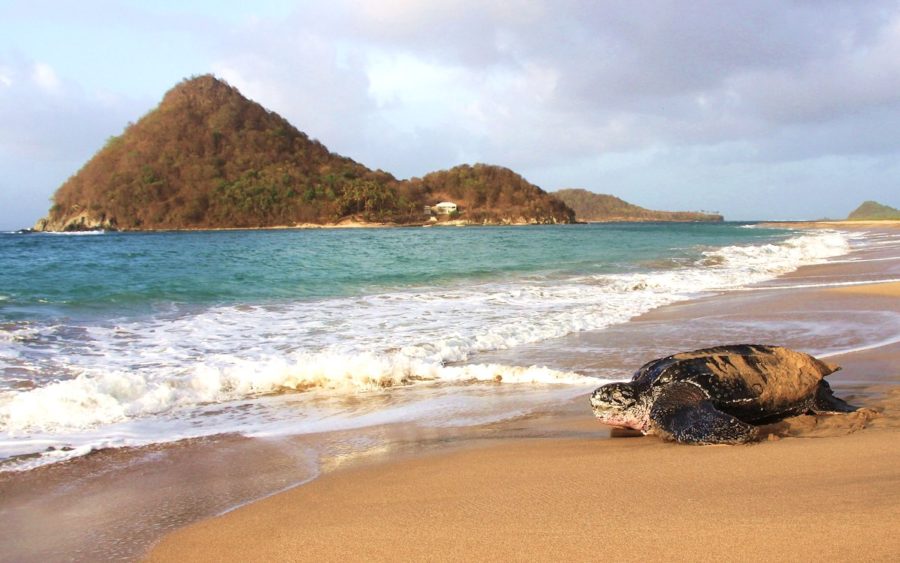
Moreover, Levera is a critical habitat for numerous species of mammals, snakes and fish. The beach is the third largest nesting site for Endangered leatherback sea turtles in the Caribbean, with 600–1400 nesting activities recorded annually, according to Ocean Spirits (a local sea turtle NGO). Offshore, there are important foraging grounds for Endangered green sea turtles and Critically Endangered hawksbill sea turtles, as well as Critically Endangered elkhorn coral colonies growing in shallow waters close to the coastline.
Although the area is used by local fishermen and Grenadians for recreational purposes, there has been very little consultation with the community and no modification of the plans to address environmental and social concerns. Notably, a recent survey of stakeholders done in 2016 in the communities in and around Levera suggests that less than 15% of individuals support hotel development. More than two-thirds support the establishment of a National Park and Recreational Area and have suggestions for how they would like to see their community involved through a “co-management” approach.
It is unclear if the current deforestation—including for the purpose of building migrant workers’ barracks—was approved by the Physical Planning Unit, or whether an EIA has been undertaken for this development. Furthermore, there is strong evidence that funds for the Levera project have been grossly mismanaged in the past. (see here, here, here, and here). The development company’s website shares information on the Grenada Levera project from the home page, including a short video regarding the vision for this area (see photos in the gallery below) and how one can invest in the project through the CBI (Citizenship By Investment) programme.

Protect Grenada from Destructive Land Development – Final Thoughts
We must prevent future generations from wondering how Grenada managed to destroy so much of its natural habitat, a precious resource in which man and nature should exist in harmony. It’s not too late to put a stop to these developments, which are already having a significant damaging effect on the environment. Tourism is a key element of Grenada’s economy, but any new developments must take place within the context of true sustainability and sensitivity to these fragile ecosystems and the needs of local Grenadians.
In an online opinion piece dated August 25, 2020 in NowGrenada, S. Brian Samuel observes: “Naturally, tourism must play a central role in the regeneration of the Grenadian economy, but the crucial question is: What kind of tourism? You can’t fit square pegs into round holes; a country’s tourism strategy has to gel with its natural and human attributes.”
As our planet and people suffer from the global COVID-19 pandemic likely brought on by our abuse of nature, it is time to rethink tourism and development. As pointed out in this excellent NY Times article The Caribbean Dilemma, “Tourism has always been a two-edged sword for the region. It brought money for some, but also brought corruption, environmental degradation, and unchecked development.”
Local economies are best protected by protecting nature. We stand with our local partners and call on the Government of Grenada to immediately cease destructive activities at these sites and plan a way forward that protects Grenada’s natural assets for generations to come.
CALL TO ACTION – Your help is needed right now
Sign the online petition.
Write to your Parliamentary Representative.
Thank you!!!
Note: After signing this petition, change.org will ask for a donation – this is inherent functionality of change.org petitions. The donations are used by change.org as payment to boost the petition, and it is not possible to remove this feature from the petition. All donations go to change.org and not the Grenada Land Actors Platform (consortium of concerned local citizens and groups) – we do apologize for this, and are working on a way for people that wish to do so to support the cause in Grenada directly through donations as well as signing the petition.
Artist renditions of the 3 developments are shown in the gallery below.








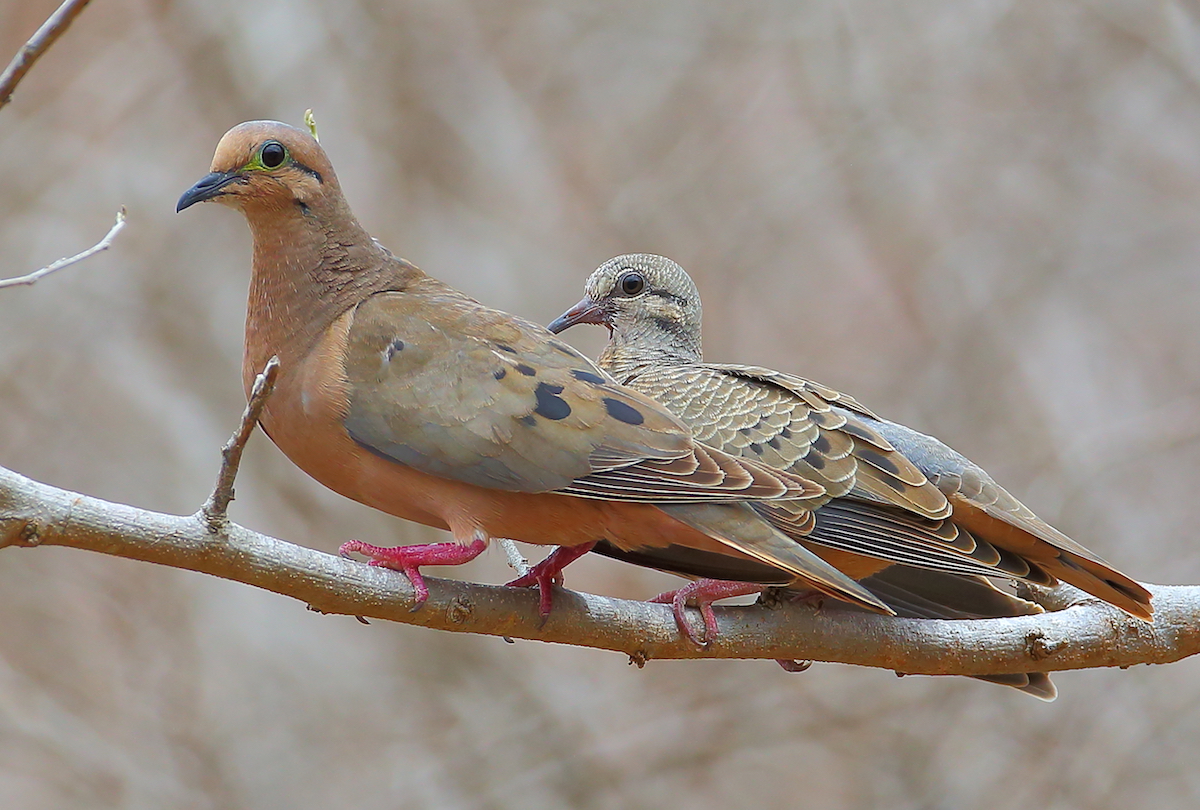
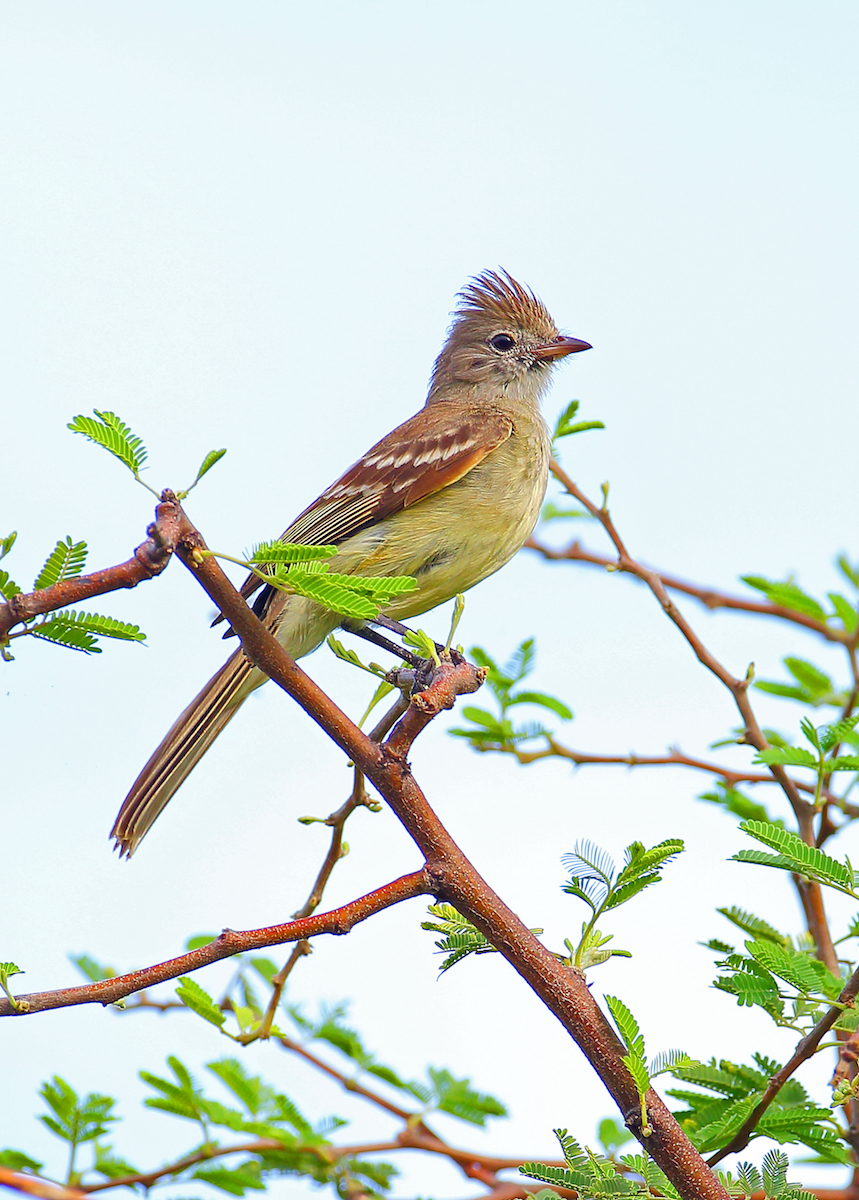
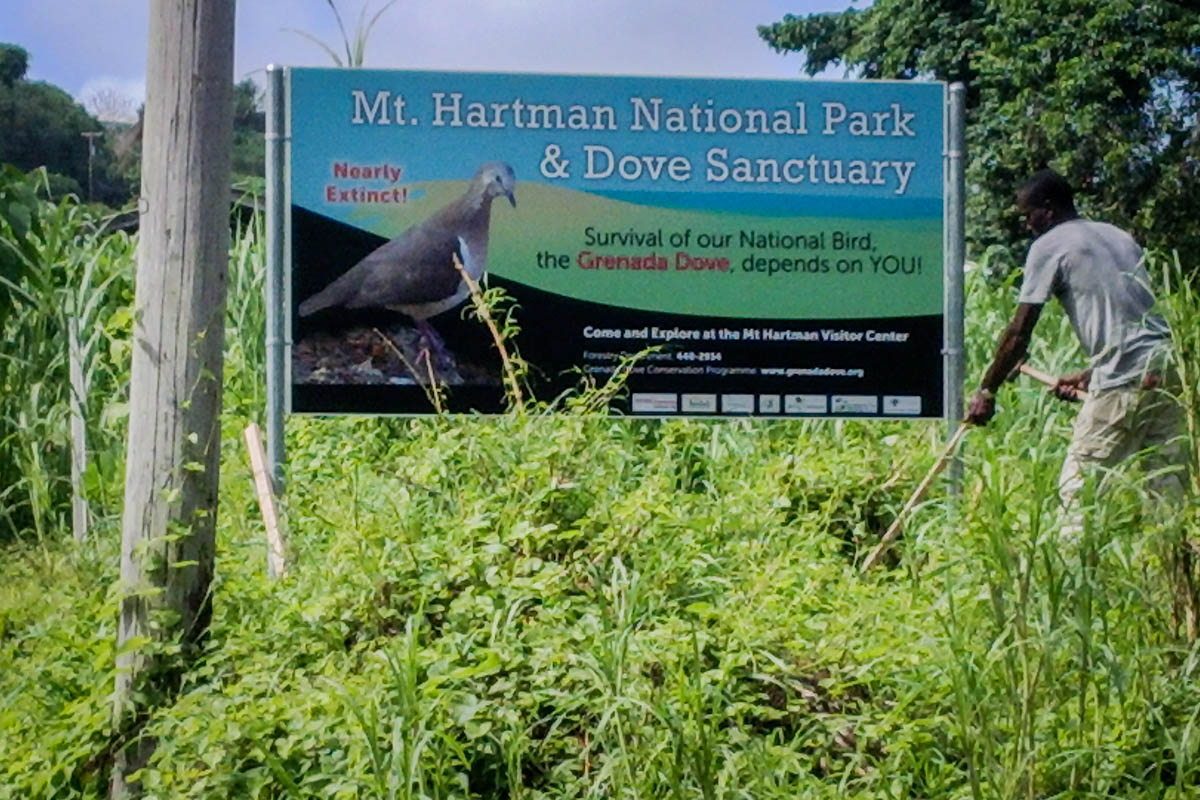
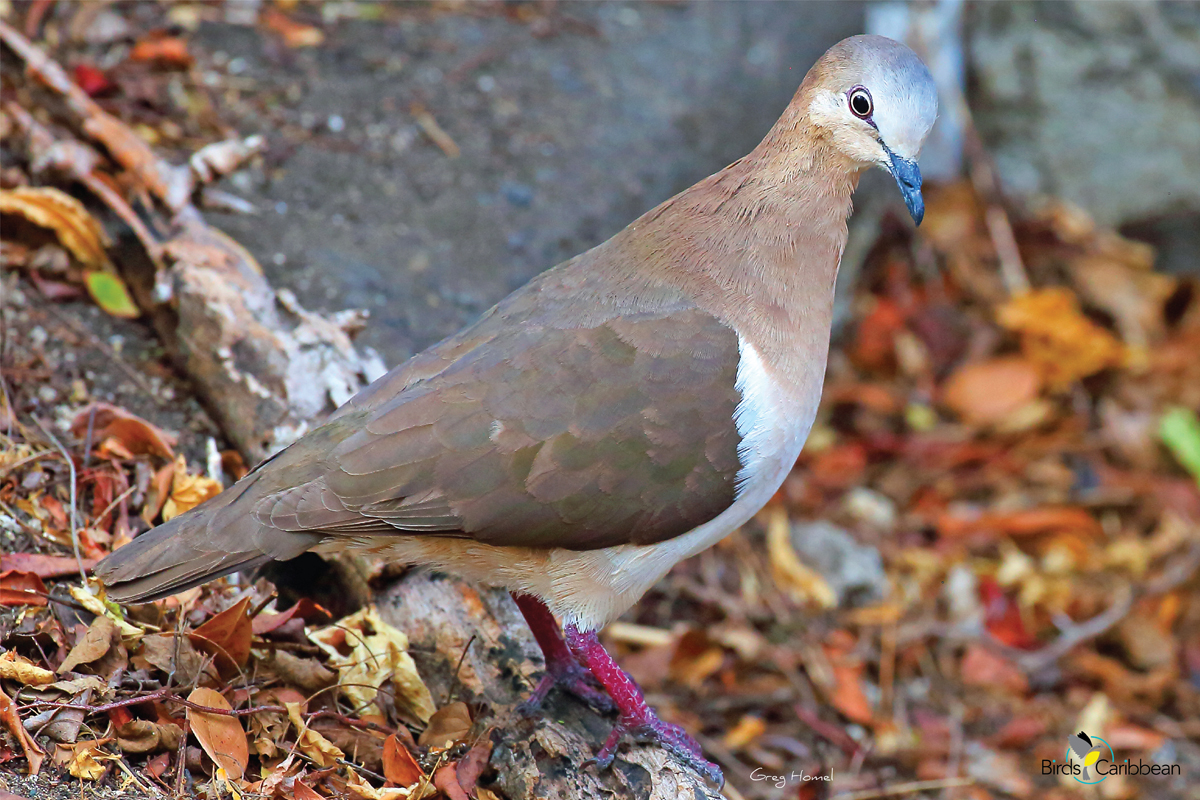
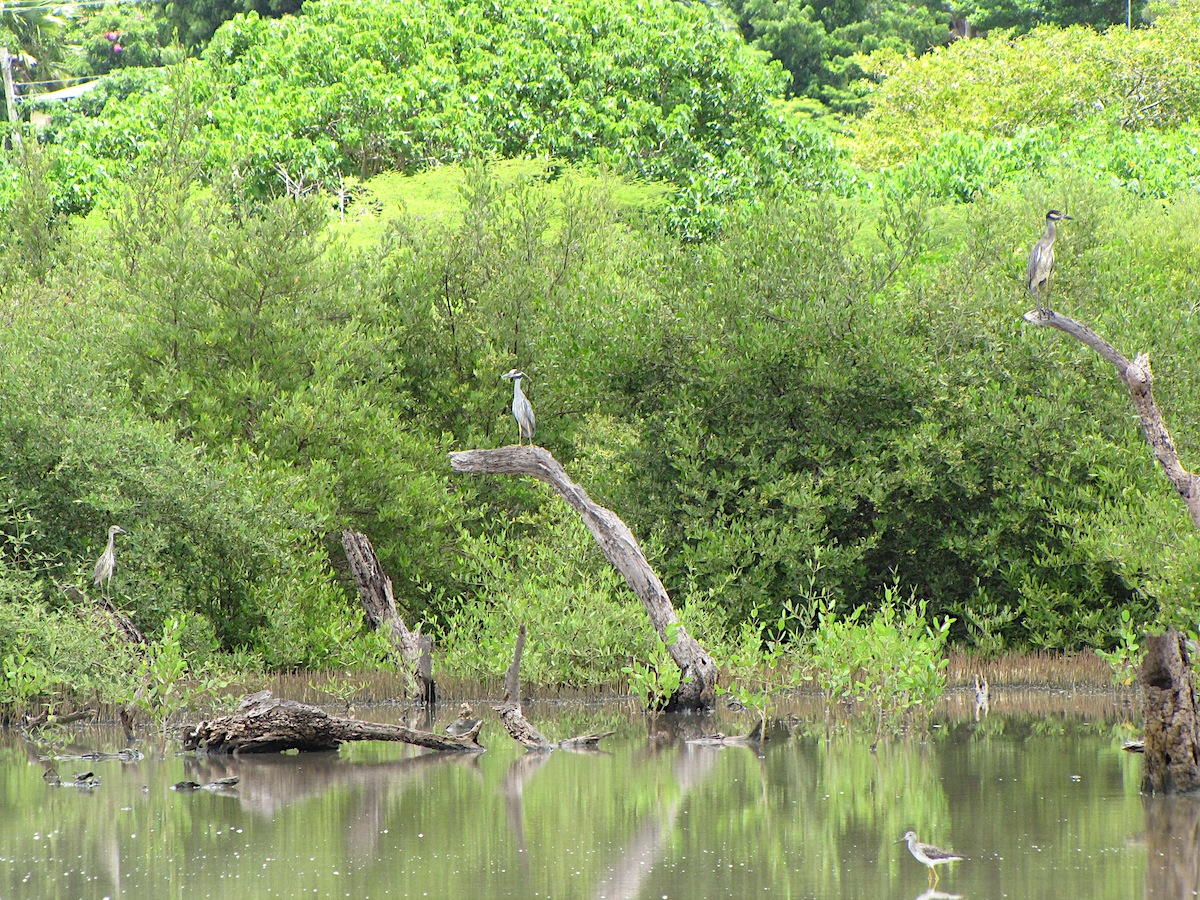
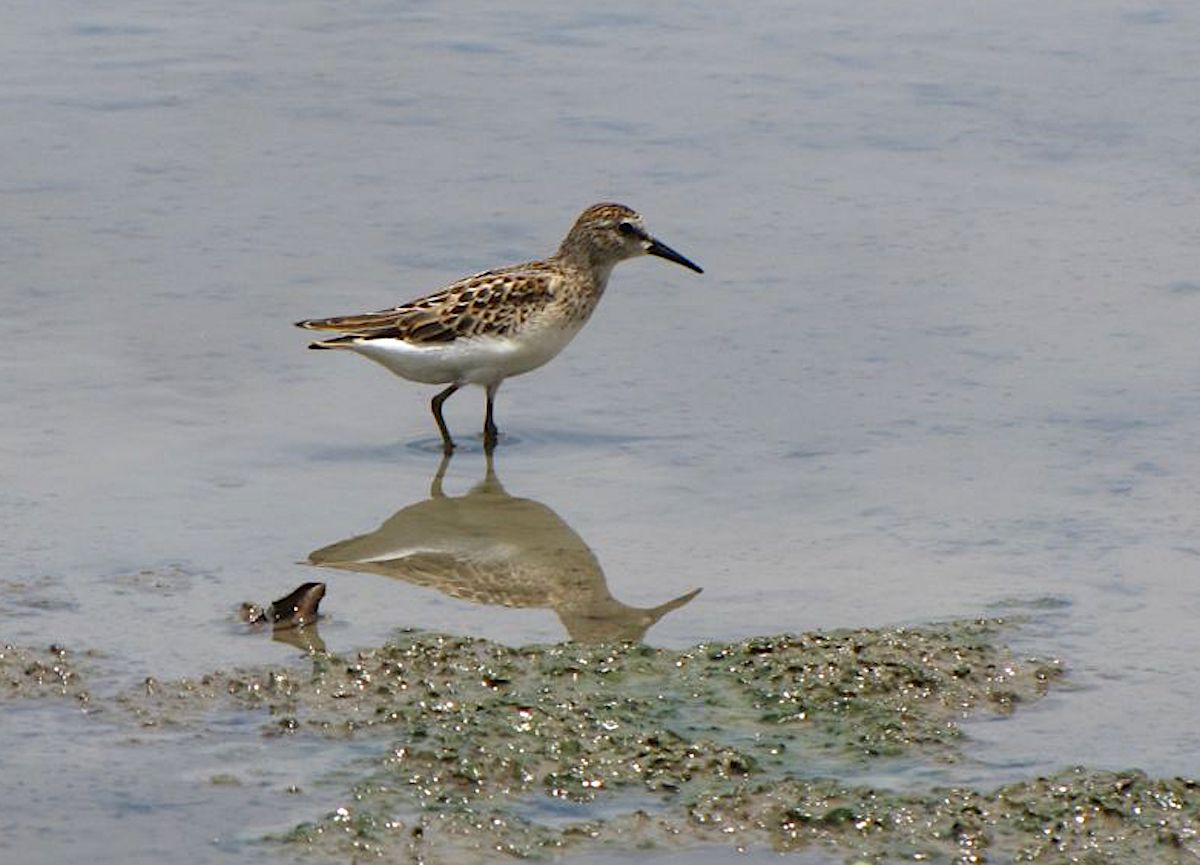
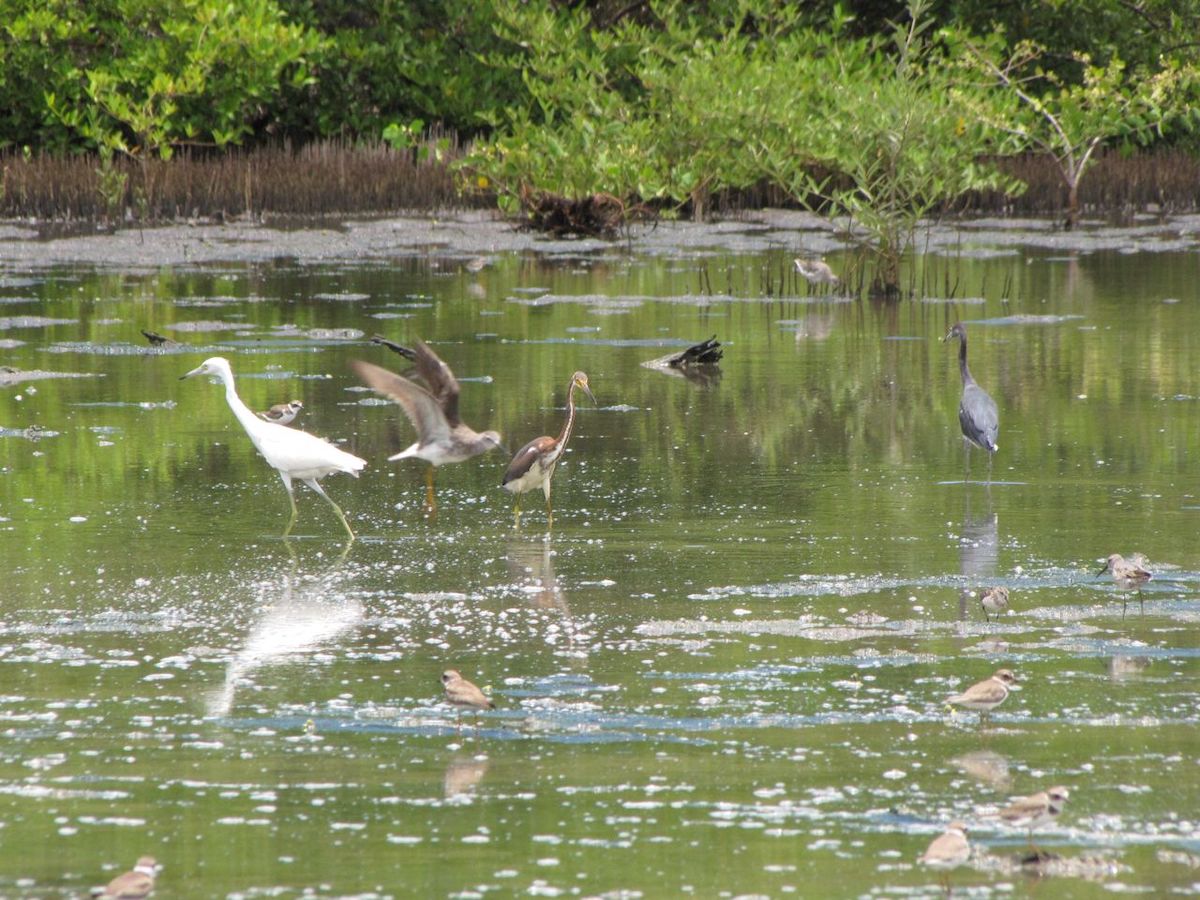
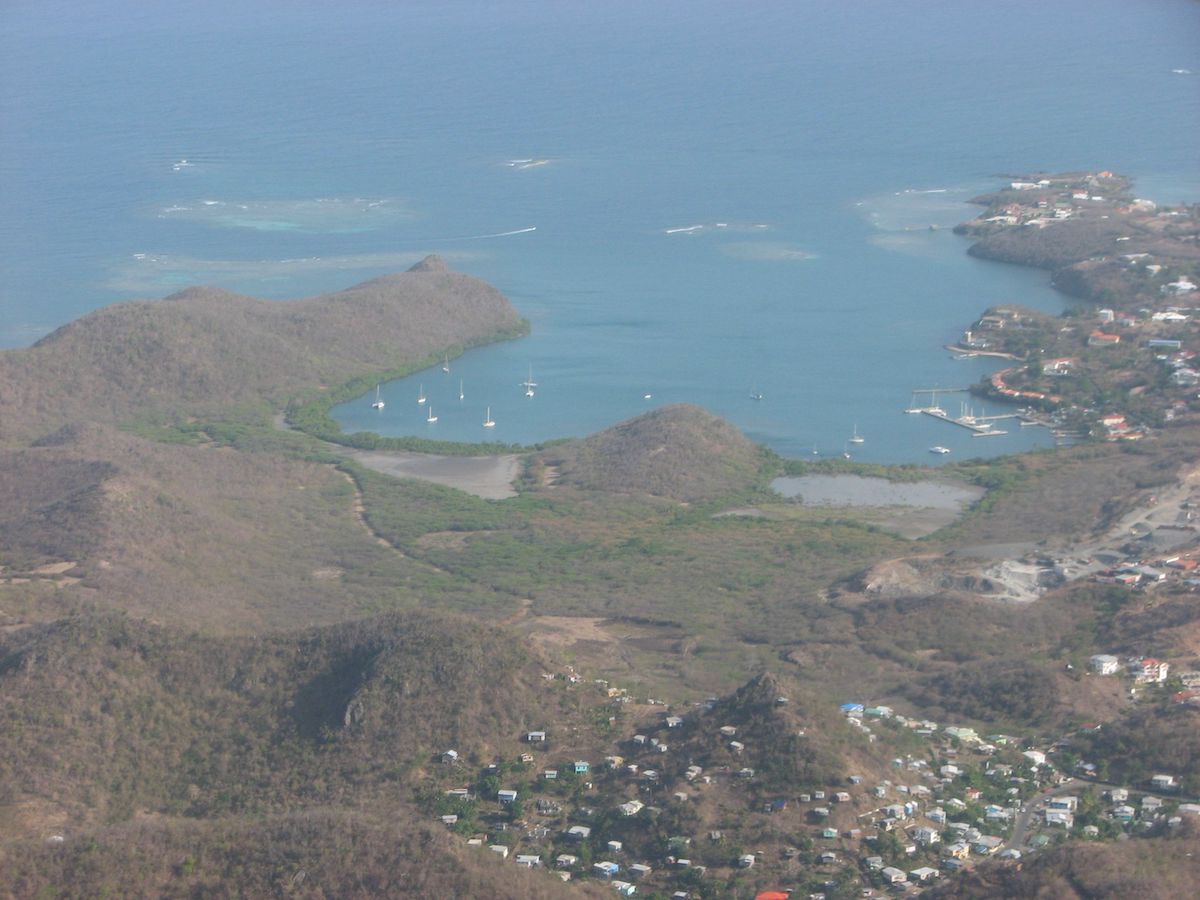
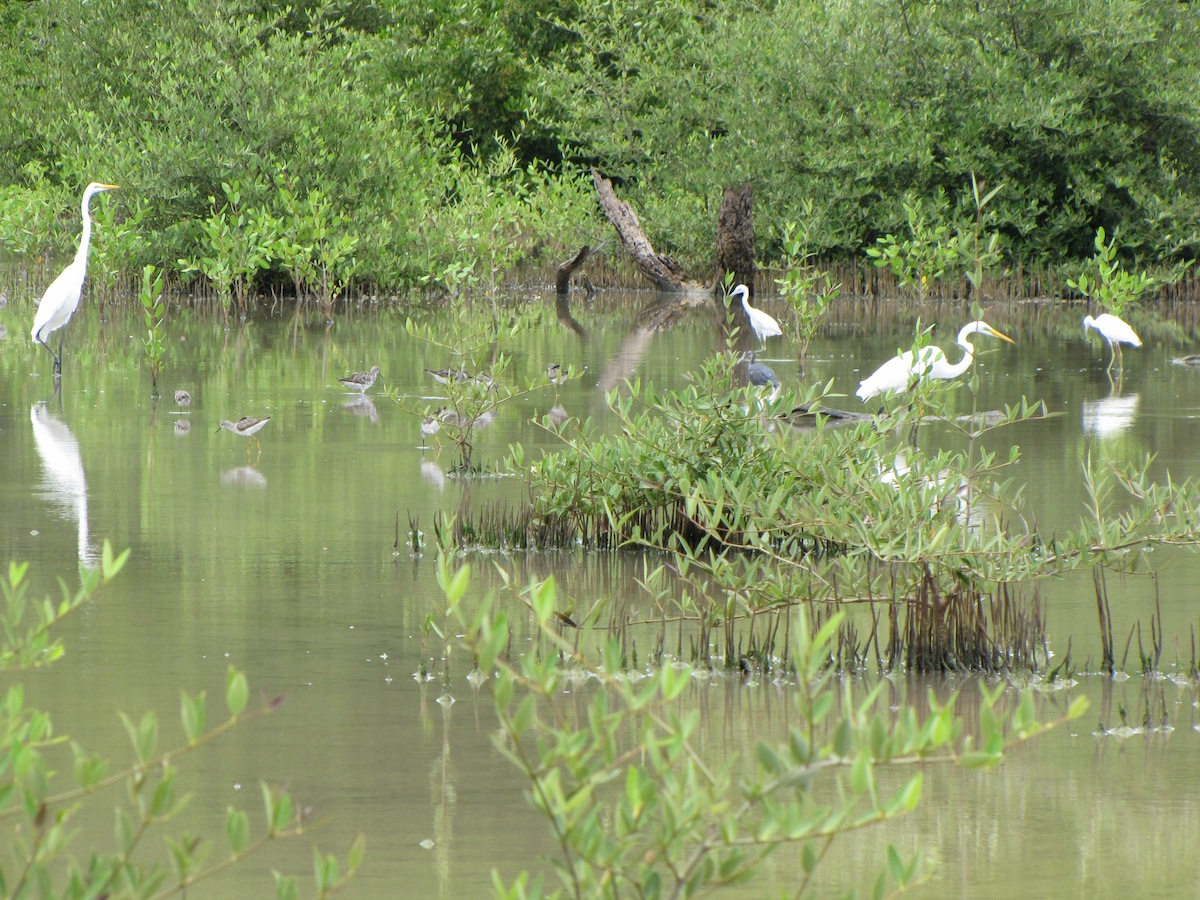
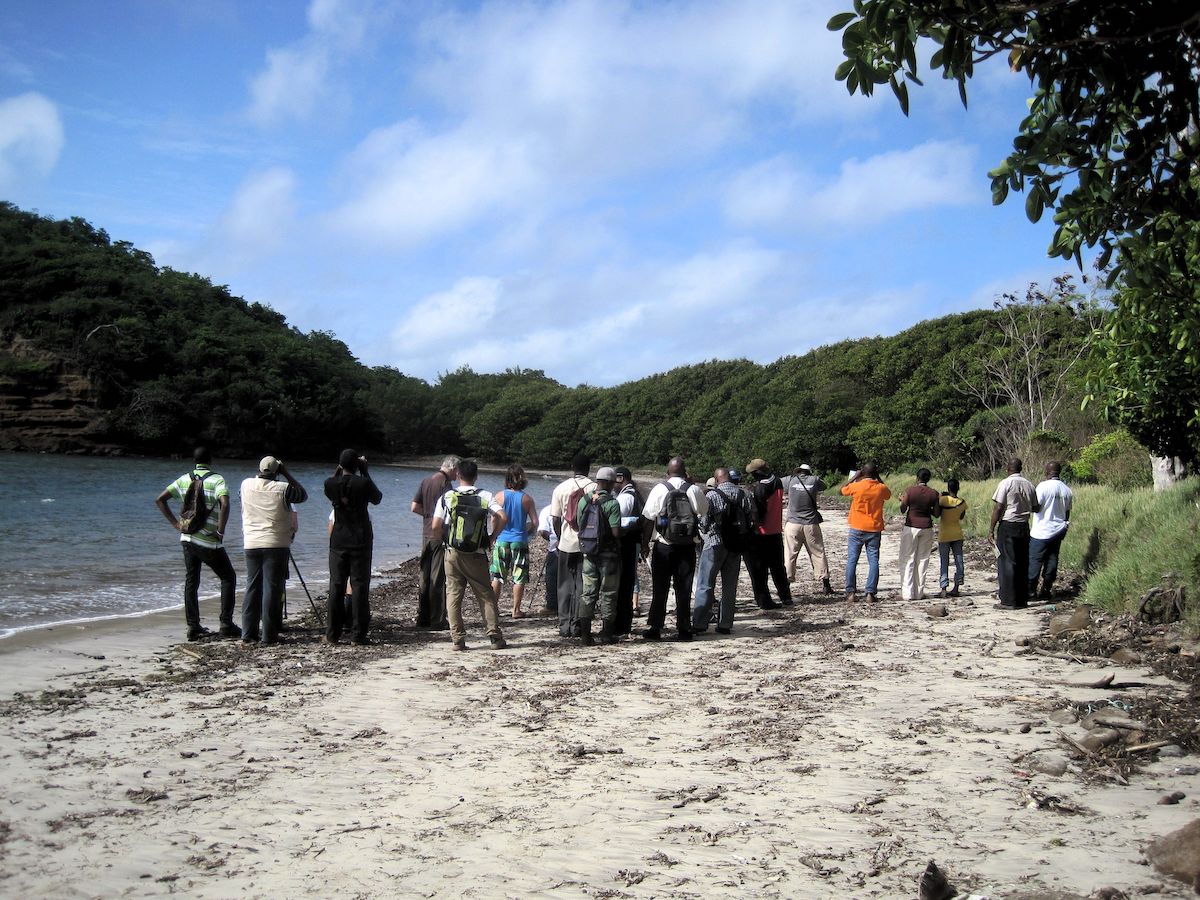
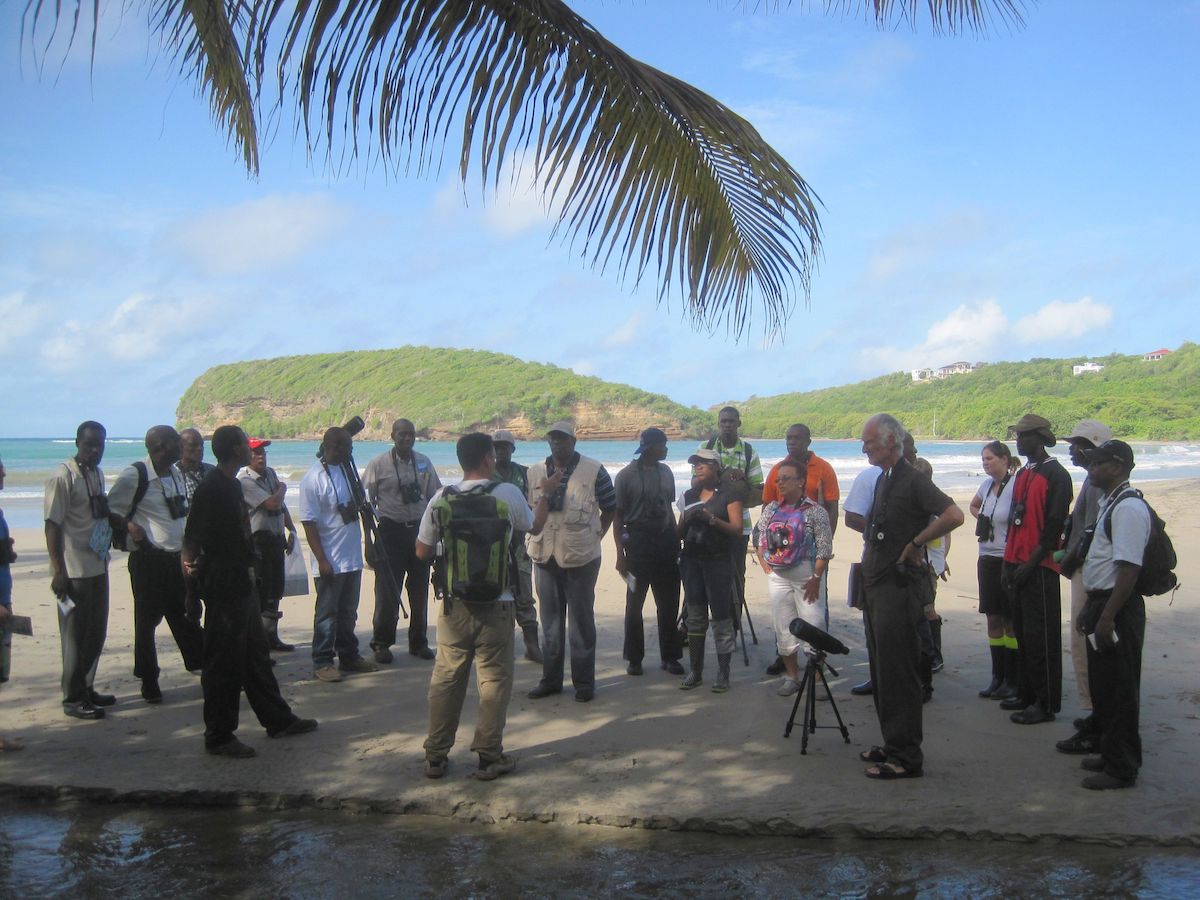
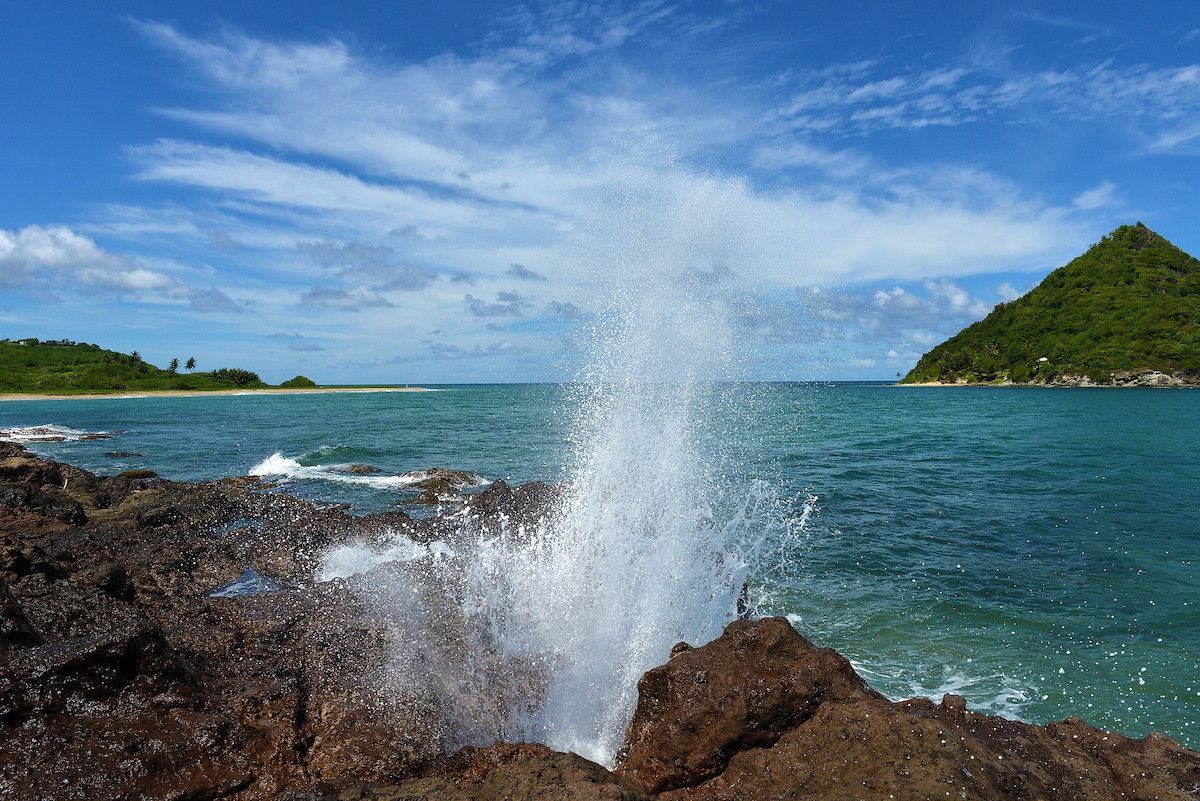
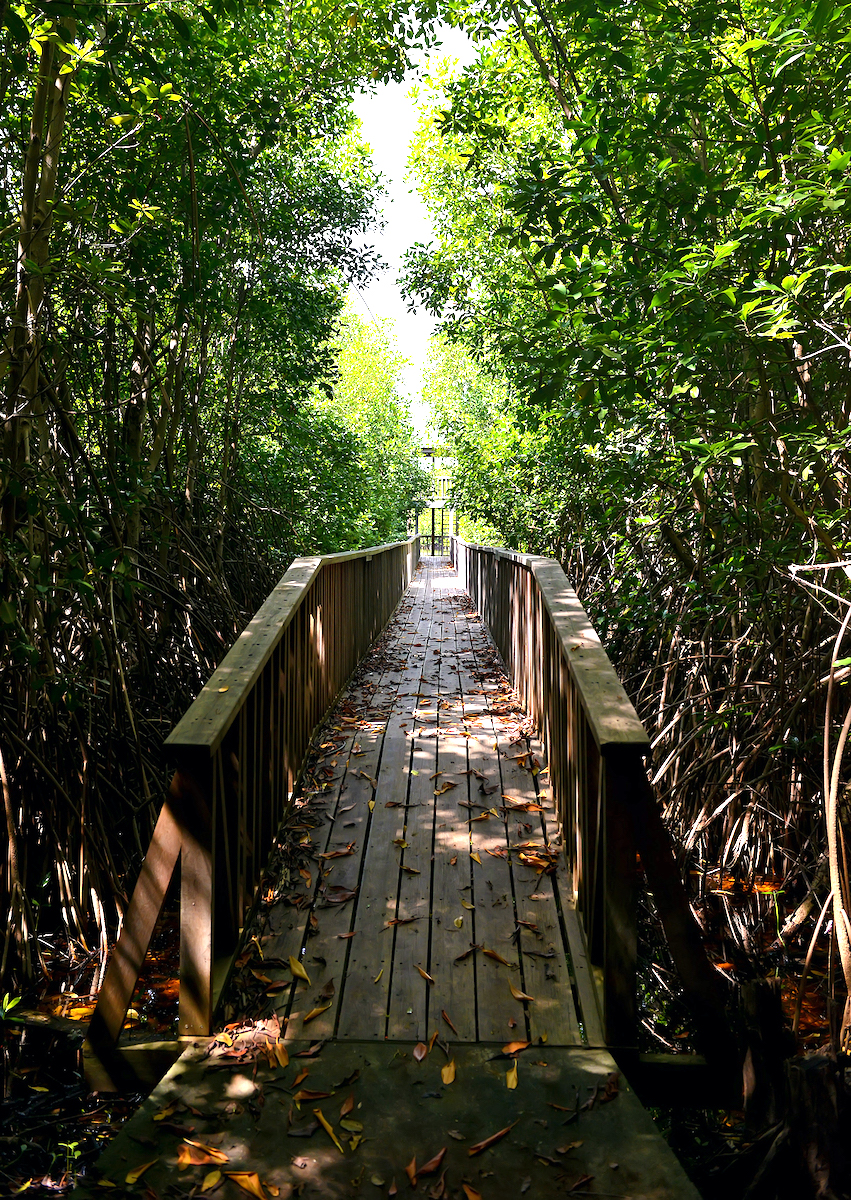
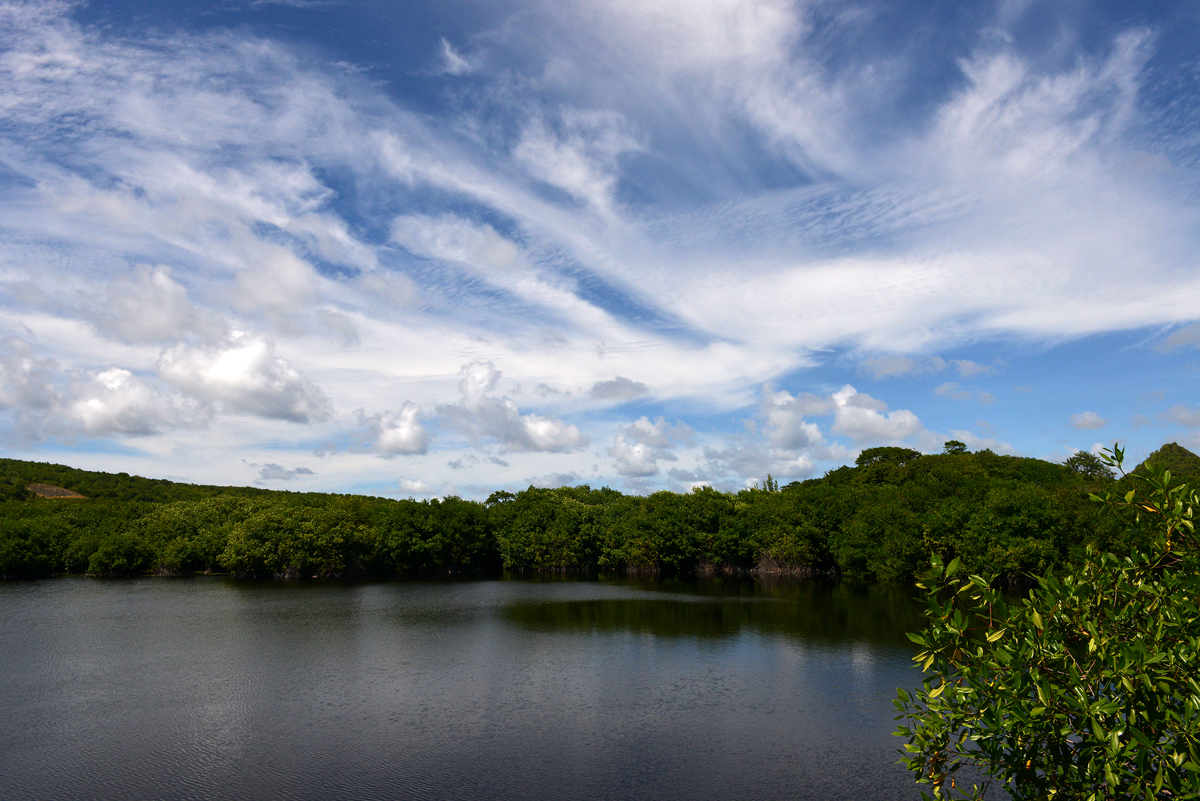
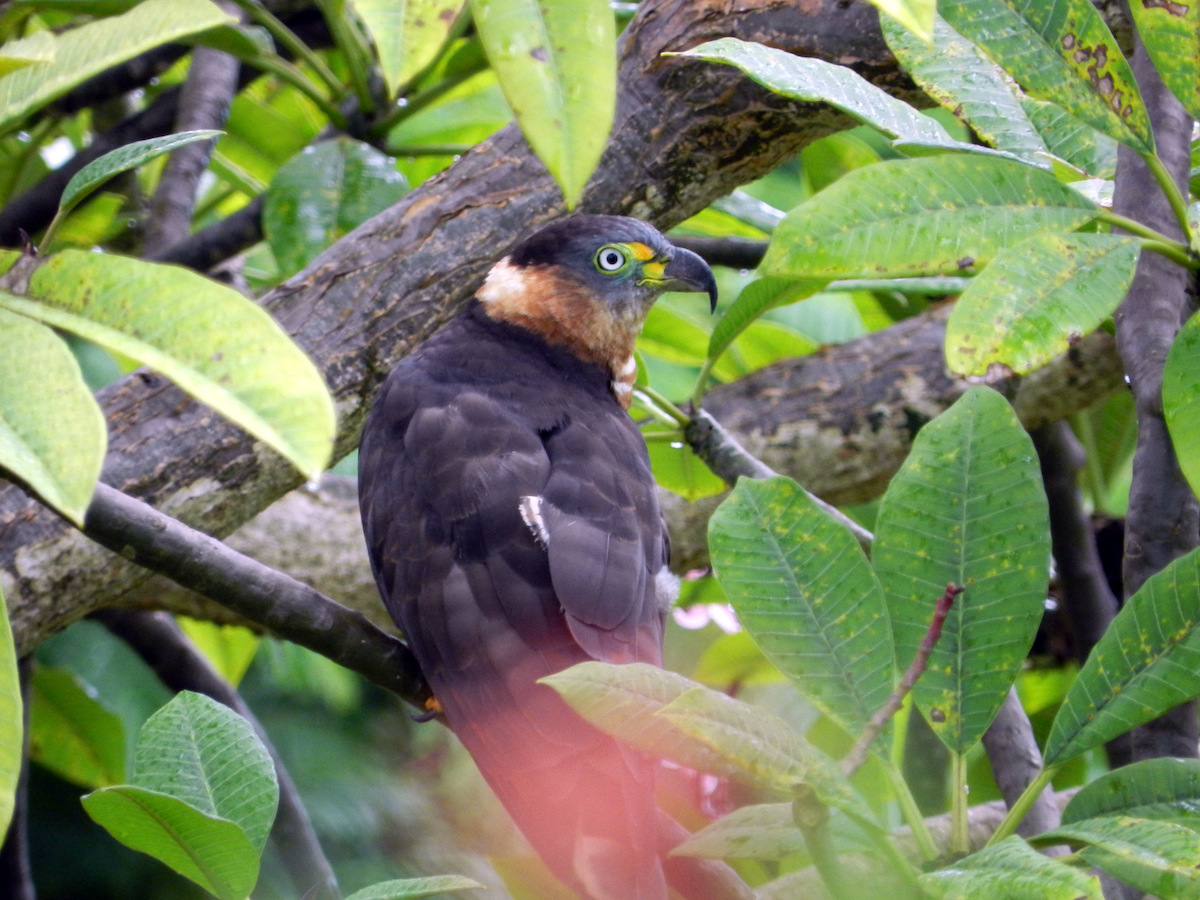
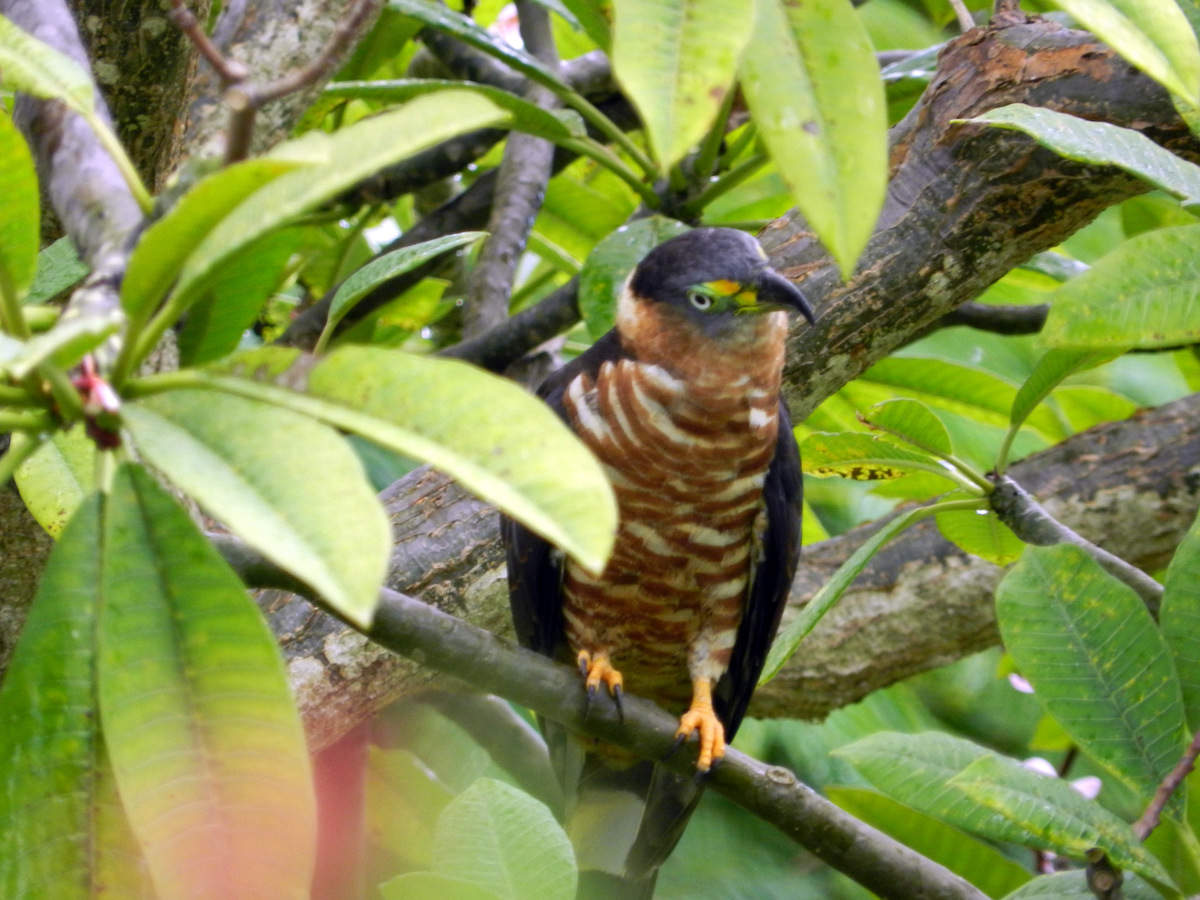
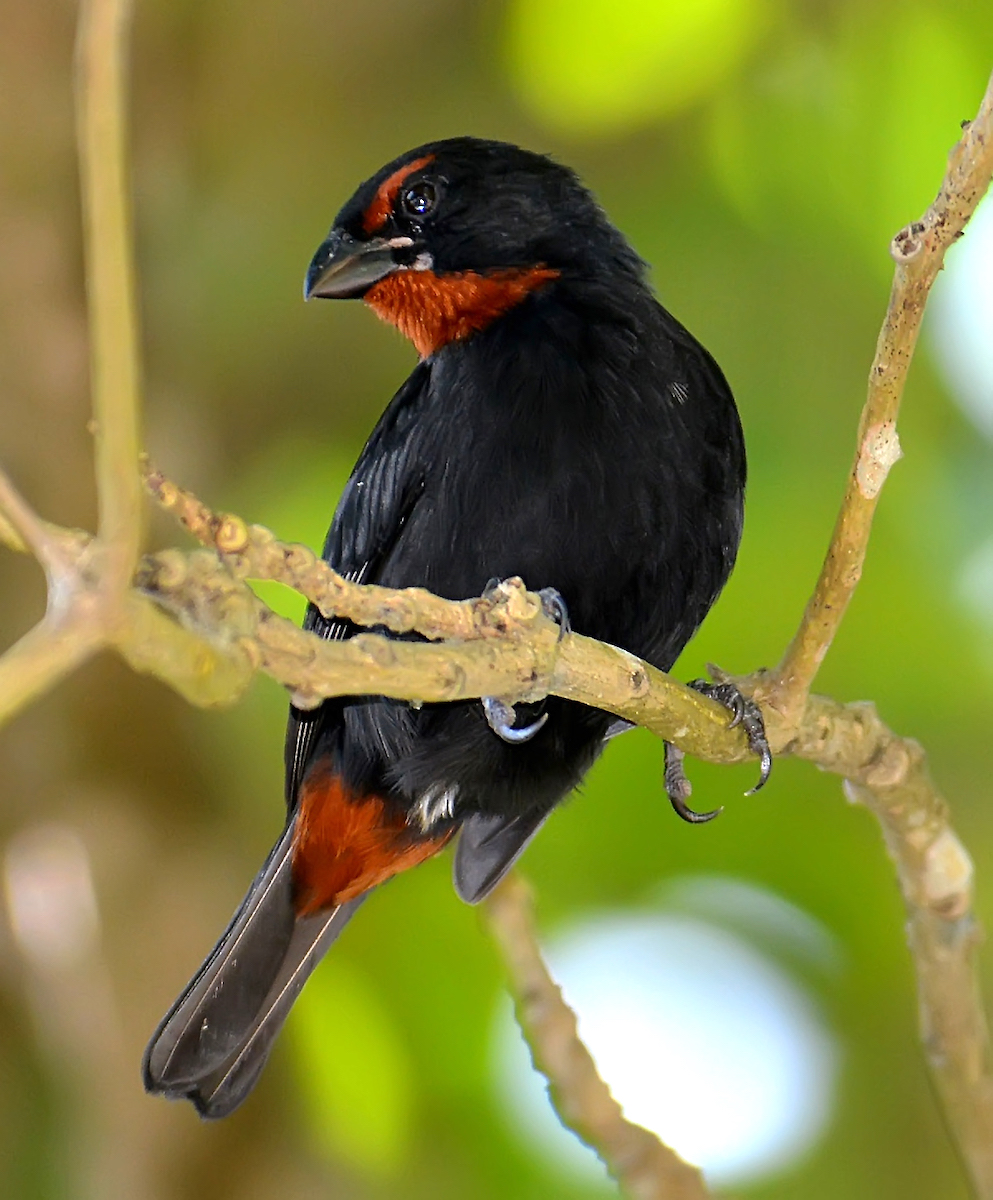
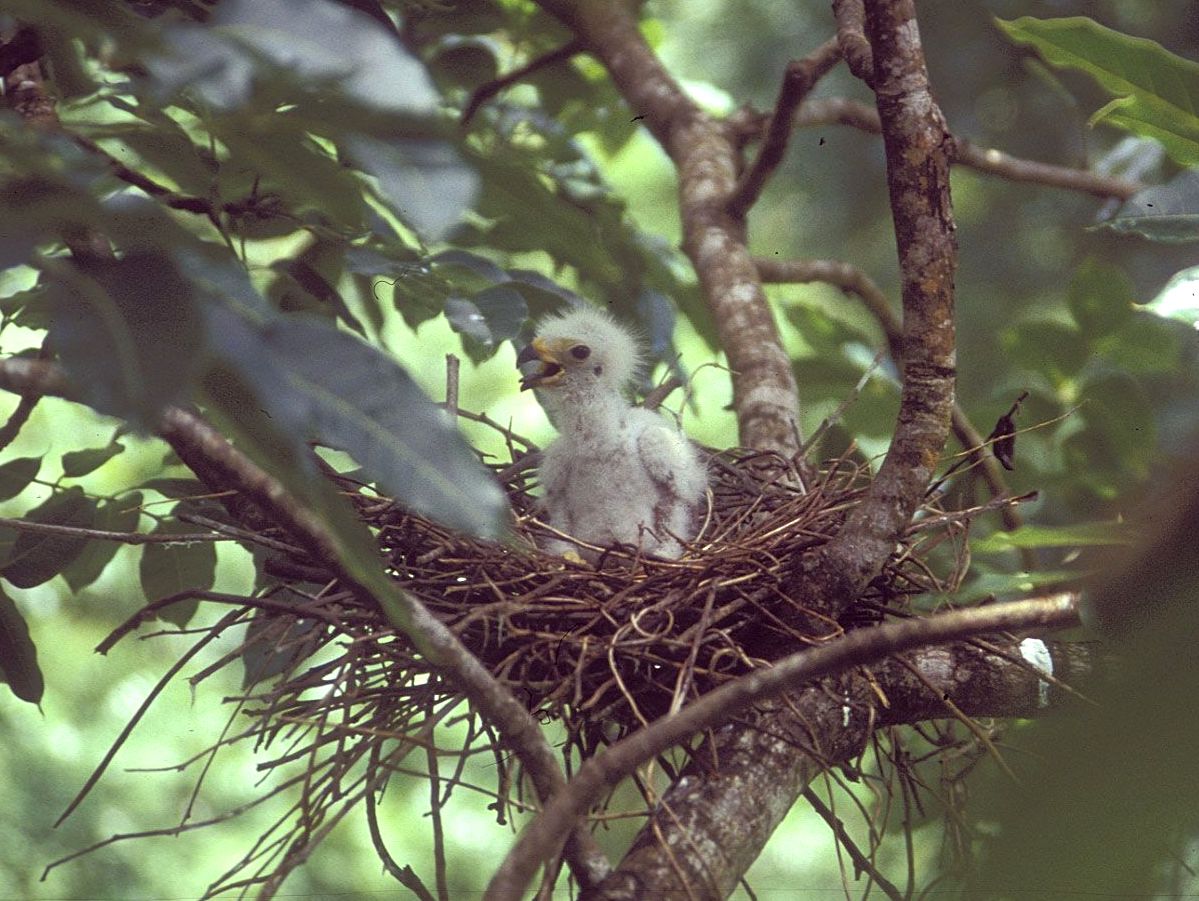
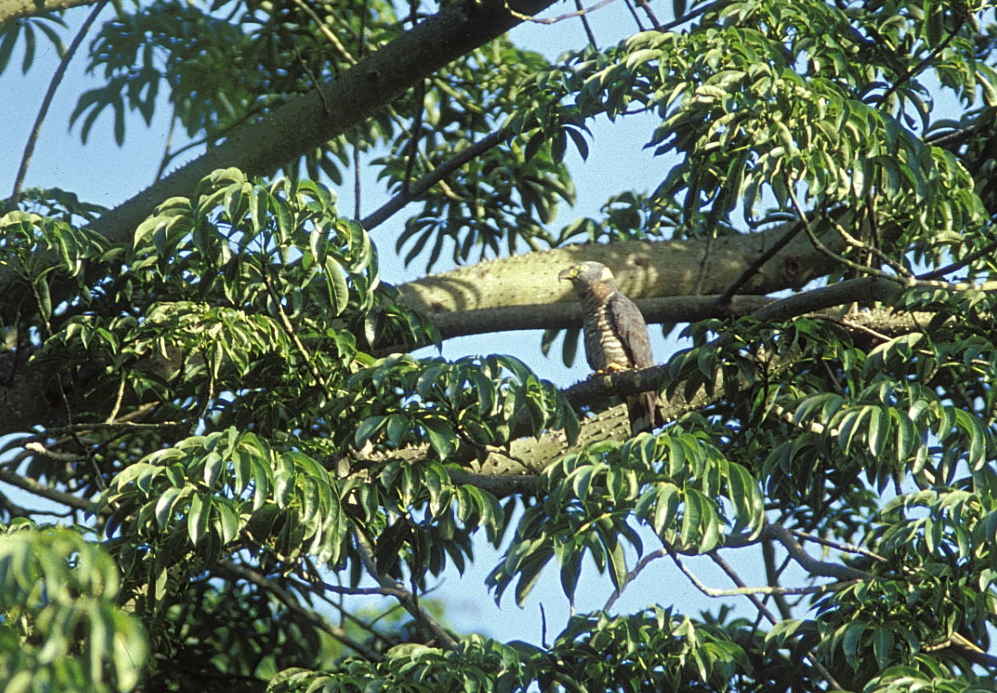
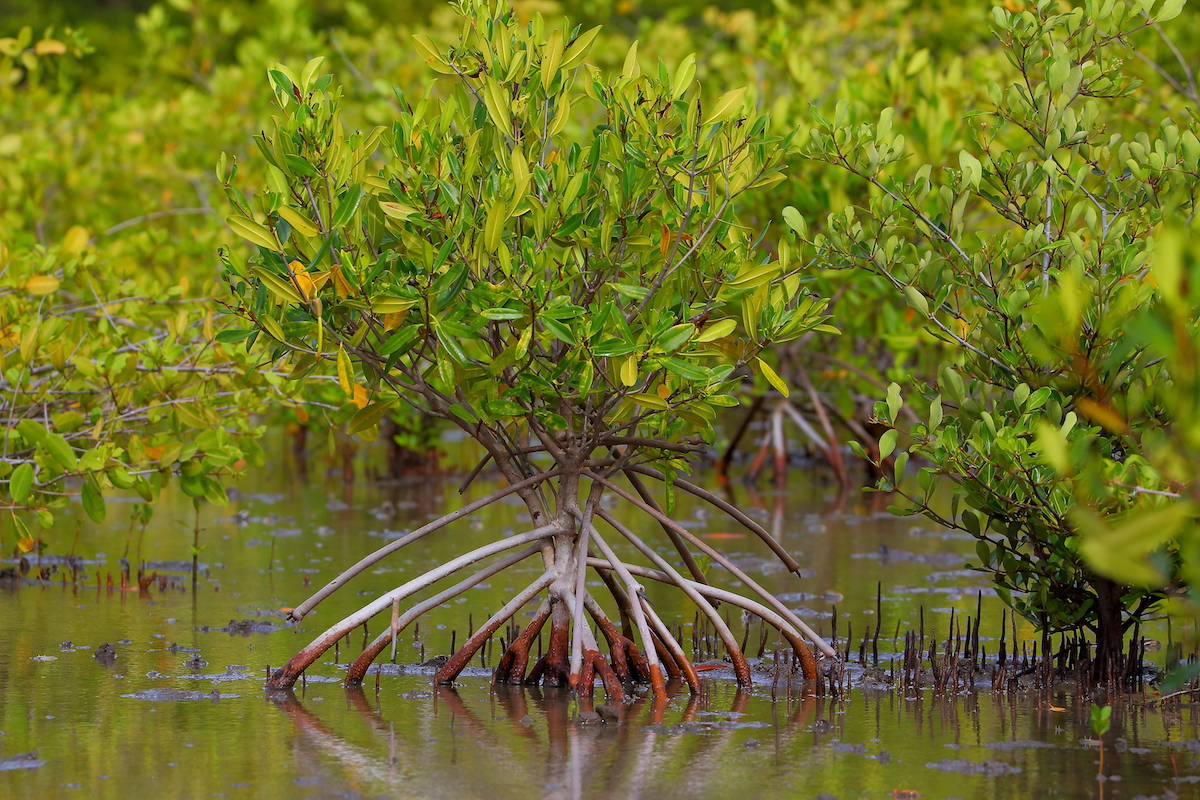
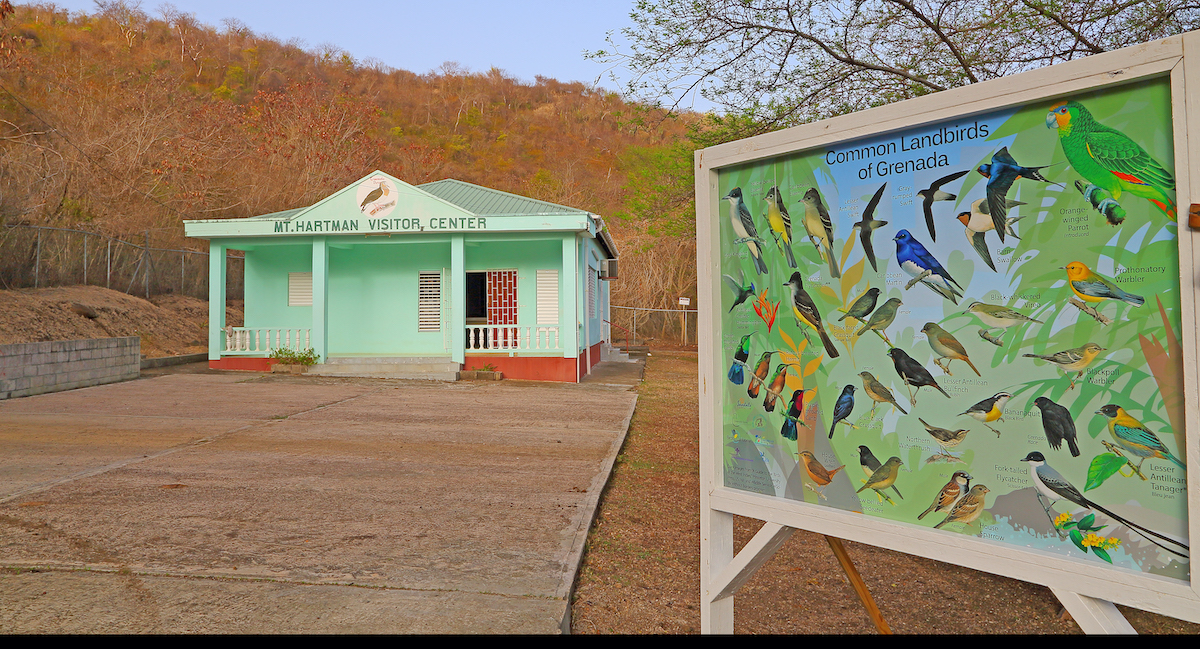
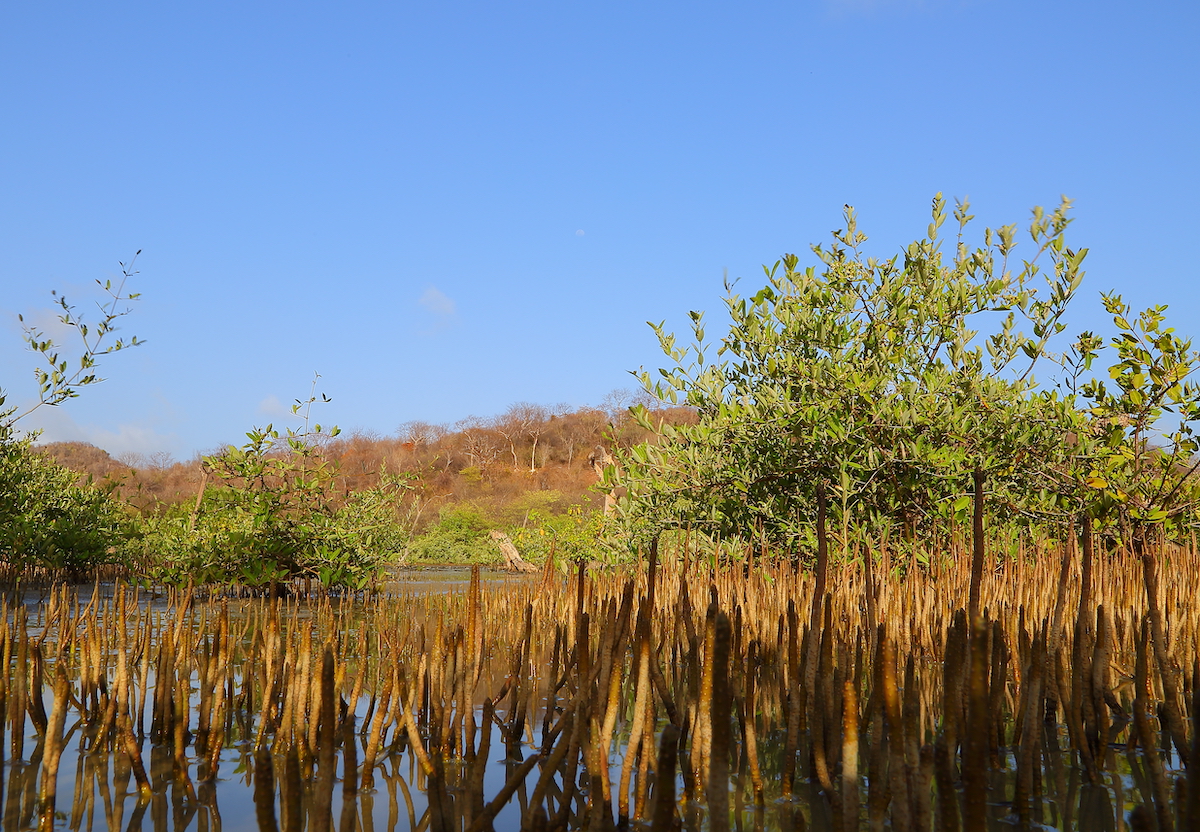
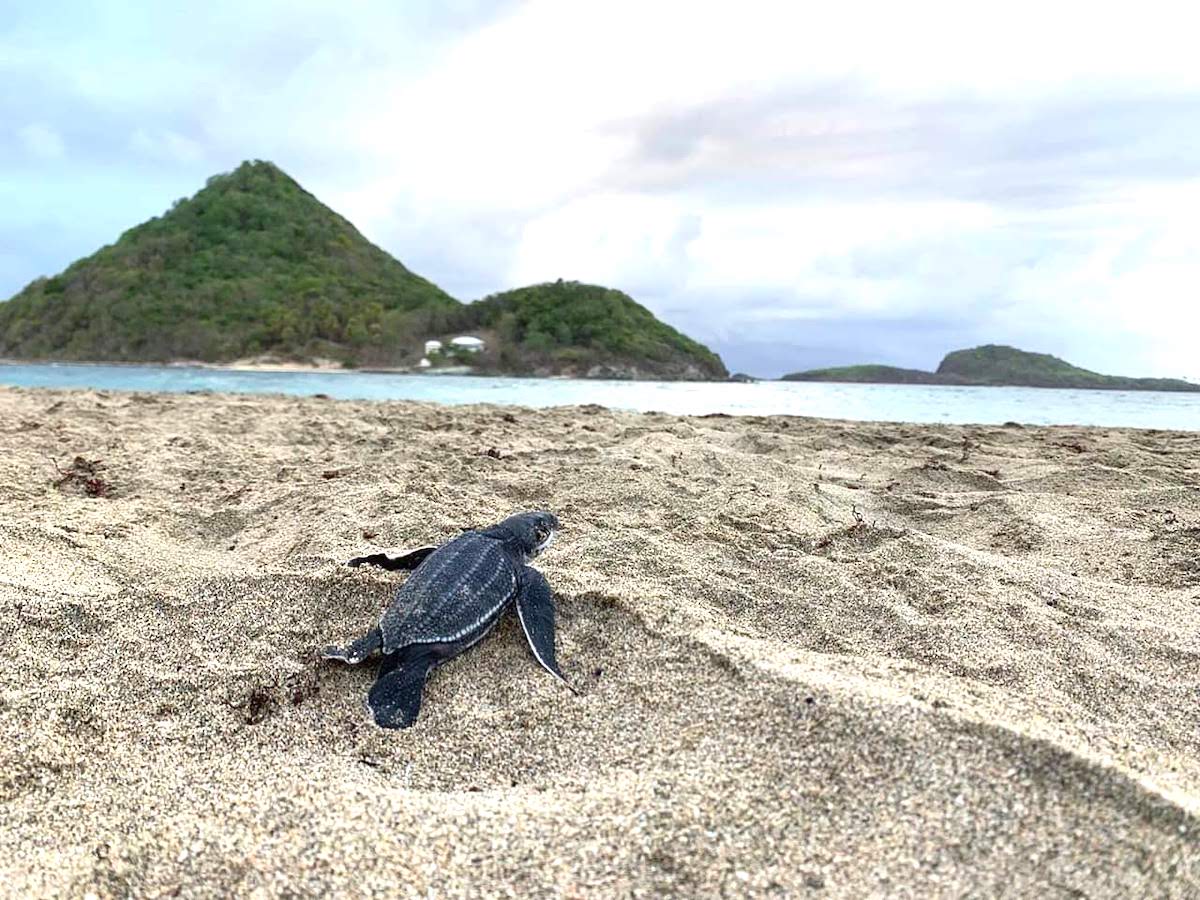
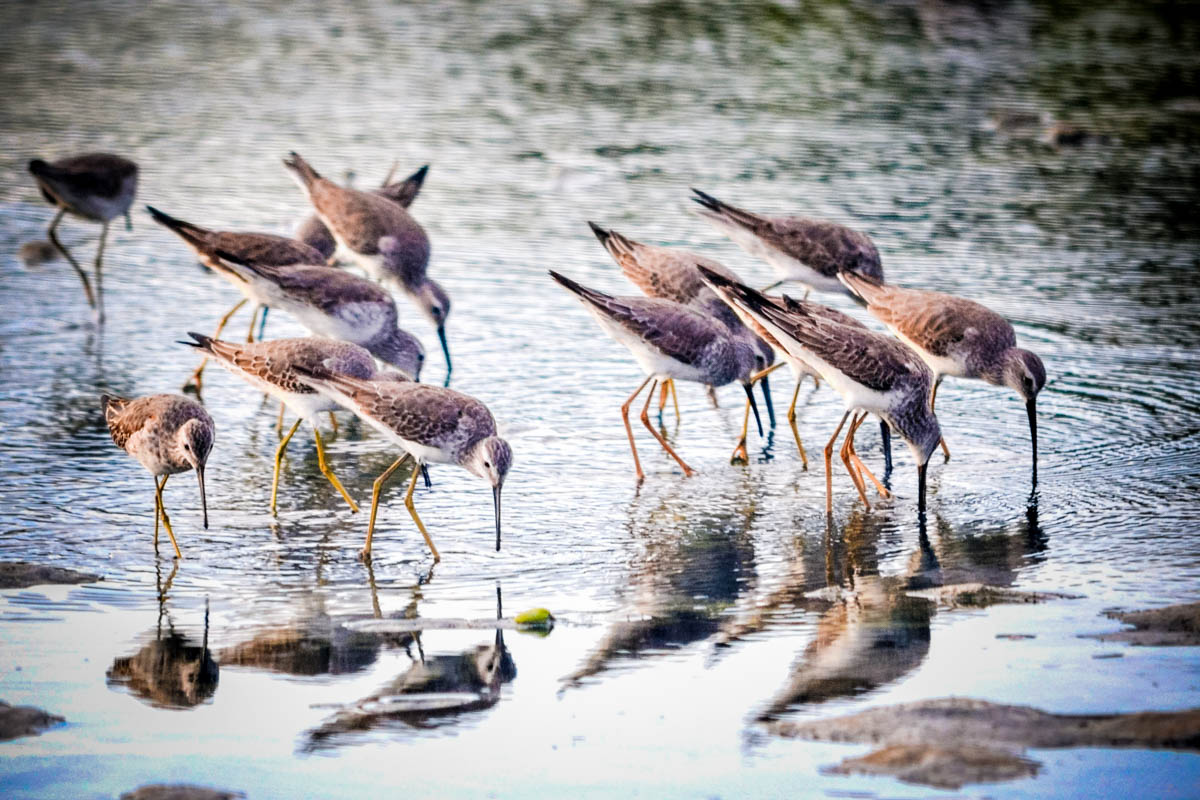
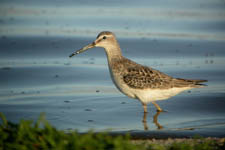
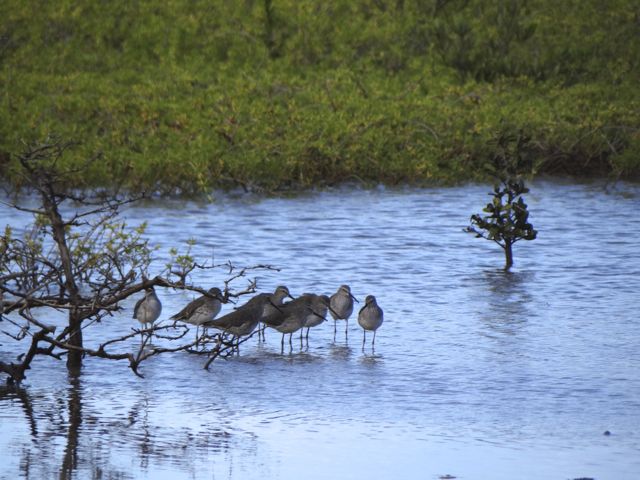
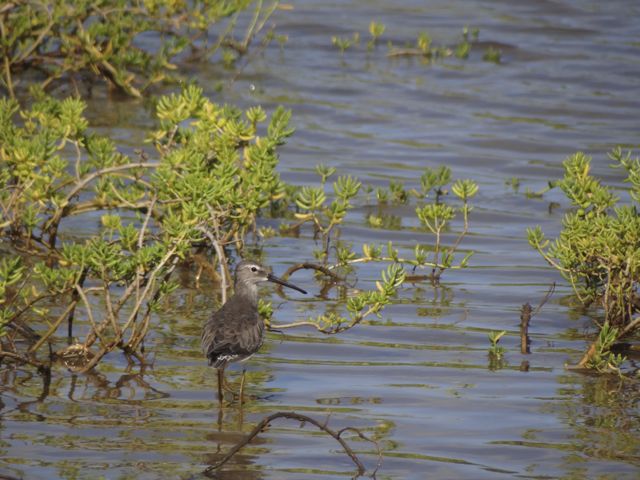
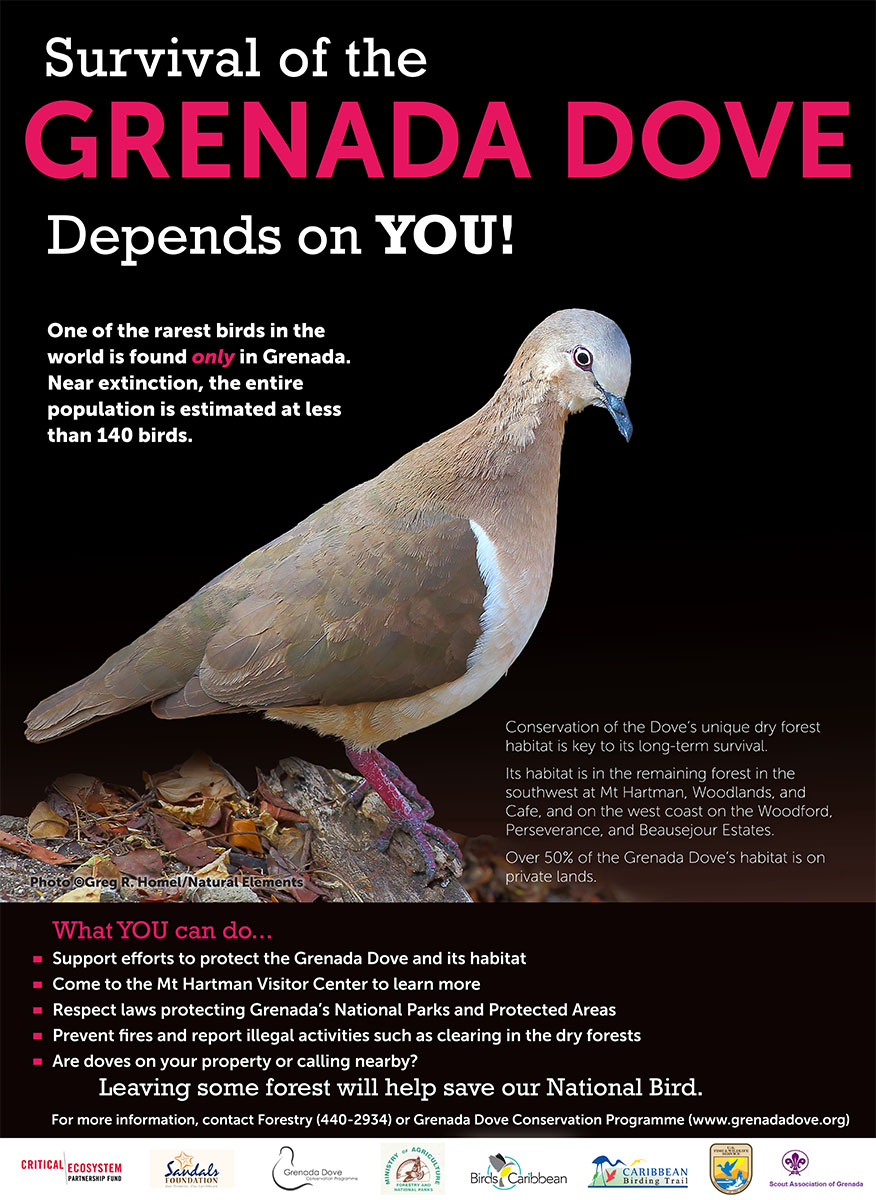
A long time ago I recall the Government saying our forests and wetlands are not for use for building and no one can purchase them. I was so shocked when I saw houses were built in Grand Etang. Now Mt Hartman is destroyed and Levera. These people care nothing about Grenada and Grenadians. They know they can jump a plane and fly away to another man’s country so they are making sure we Grenadians and our children end up with nothing.
People: it’s time we stand on our feet and fight for our country so our children can have something to look forward to. Look at the pics with the birds how beautiful they look in their habitat. We need to keep Grenada beautiful and not allow anyone to destroy it for us. Let’s make our voices be heard. This is serious business.
This development is so sad really… Grenada government has sold out to foreign money.
We have been coming to Grenada since before Ivan, a time of the real pure Grenada.
Now China and Arabs and others come and lay waste to beauty in the name of resorts.
Look at BBC and how it change in 20 years. It was paradise, now resorts took over.
Ivan robbed Grenada of much but people rebuilt. China & others are robbing Grenada now but no rebuilding what you have sold.
We loved Grenada before all this development but that time is gone, all that remains is good memories of family and friends there.
It’s a shame, what is happening to my beautiful country Grenada, all because of a greedy and treacherous government, they only think of profits, not the well being of the people and animals that need their protections. I call on every Grenadian, wherever you are, let us stand together as one to protect our “Country” from these people who does not believe in beautiful things of a country.
These developments have to stop right now!!! Are there any laws and regulations in this country???
Nothing will change NNP DON’T CARE.
BUT when one or 2 get taken out in public watch dem move out fast.. Remember the Revo
Most Caribbean leaders are a bunch of Pimps prostituting the people’s property and their legacy to their deep pockets. They make our leaders into prostitutes and the people suffer. We the people in the region don’t benefit, it’s only the developers and the so-called leaders who sell us out for chump change.
It is not the “Government of Grenada” who is guilty or these “crimes”. It is likely only a very small cadre of key players in and around the top eschelons of said Government. One can readily guess what their motivation is for doing what they are engaged in. Nuff said!
I’ve seen so many artist renderings and pretty pictures of what will be and years and years go by and all that’s left is concrete roads through the bush. People are wanting a Grenada passport and one must ask why, especially now that the UK is out of the Euro. Who are these people that will spend hundreds of thousands USD for a passport? What sense does that make in an honest world? An honest world, what a laugh, but we get nice concrete roads through the bush and pretty pictures.
We hear you George. . . just recently watched Diplomats for Sale – Al Jazeera Investigations on YouTube: https://www.youtube.com/watch?v=m1Yba1-ijh4
Gives you the answer as to why some people want a Grenadian (or Dominican, etc.) passport. The video states: “Citizenship By Investment is a major source of income for Caribbean and European countries. Legal but controversial – wealthy families from Asia, Middle East and Russia invest around a quarter million dollars in luxury resorts or government scheme, in return they get citizenship and a new passport which allows visa-free travel to many countries. Criminals have to pay more (e.g., $1 million). As one commentator says towards the end: “Any regime putting up diplomatic status for sale is morally bankrupt.”
Save the wetlands
Please sign to help the oversight of these important indigenous lands in Grenada
This is distressing. Grenada, like many Caribbean countries, go to international agencies and beg for funds to implement climate change adaptation strategies, yet the national decisions continue to increase the vulnerability of the countries. In addition to the online petition, I suggest the following actions by local and interested regional organizations:
(1) Move this information online immediately.
(2) Prepare briefing paper on the impact of the project on the vulnerability and long-term development of the country. That should be shared with the community, policy makers, the external project proponent, and the financing institution.
(3) Prepare an analysis of how the project would affect Grenada’s commitment to the 2030 agenda, and present that analysis as a policy brief or other appropriate document.
(4) Find out if the developer intends to have a branded hotel and/or marina, and contact the brand(s) with the concerns.
Thank you so much for your helpful comments, Lloyd. I will them along to our local partners who are working on this issue.
Soon these specie’s will no longer exist, what will we tell our children?
Does the Government of Grenada (GoG)realise that it appears incompetent and environmentally irresponsible and will suffer serious consequences from the international donor network, if it allows these developments to go ahead. It will also suffer from an increasingly bad reputation nationally and will lose the trust of citizens. It is apparent that no effective analysis of impacts has been done. If properly and sensitively planned there should have been plenty of opportunity for mitigation planning of social and ecological impacts.
Many countries are finding that Chinese funding is not the answer to their economic development – since it is entirely self-interested, and the main economic returns will benefit the Chinese – ‘coral-ling the world’s resources’ as someone said recently.
Has anyone looked at where the investment is coming from for the private capital investment? How much is the GoG committing, and how much and from where private capital.
First step – achieve a halt to the development – to what extent is it known which Minister(s) are in the driving seat on these developments? Discussion with them?
Second- get a review of sources of funding, and on what terms and very importantly how is the island going to benefit – precisely
Third – if it comes to it, get Ministers to agree on looking at each plan separately and good people to advise on a reformed sustainably principled development
Fourth – who in the press is on your side?
Furthermore, is the GoG breaking national, regional law in permitting these developments? Do you have environmental lawyers to hand or in the Caribbean who can analyse the degree of law breaking – certainly ‘soft’ law in terms of Multi-lateral Environmental Agreements (MEAs) like Ramsar. This kind of transgression – particularly ignoring national legislation, (and lack of consultation with stakeholders) won’t go down well with international donors increasingly concerned with sustainable practices.